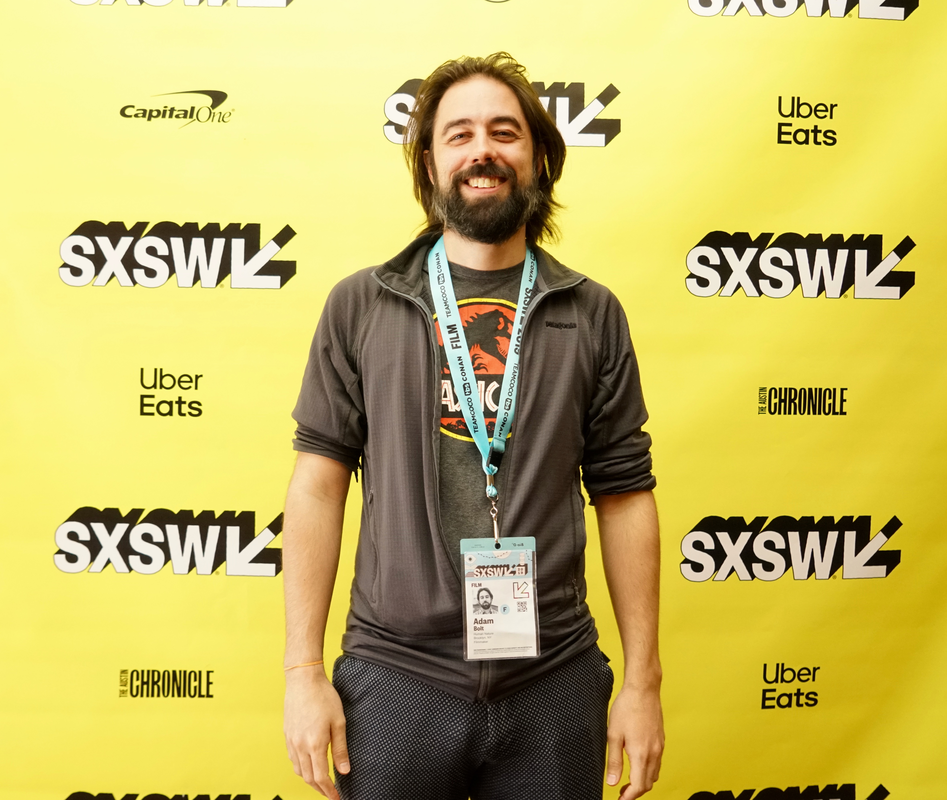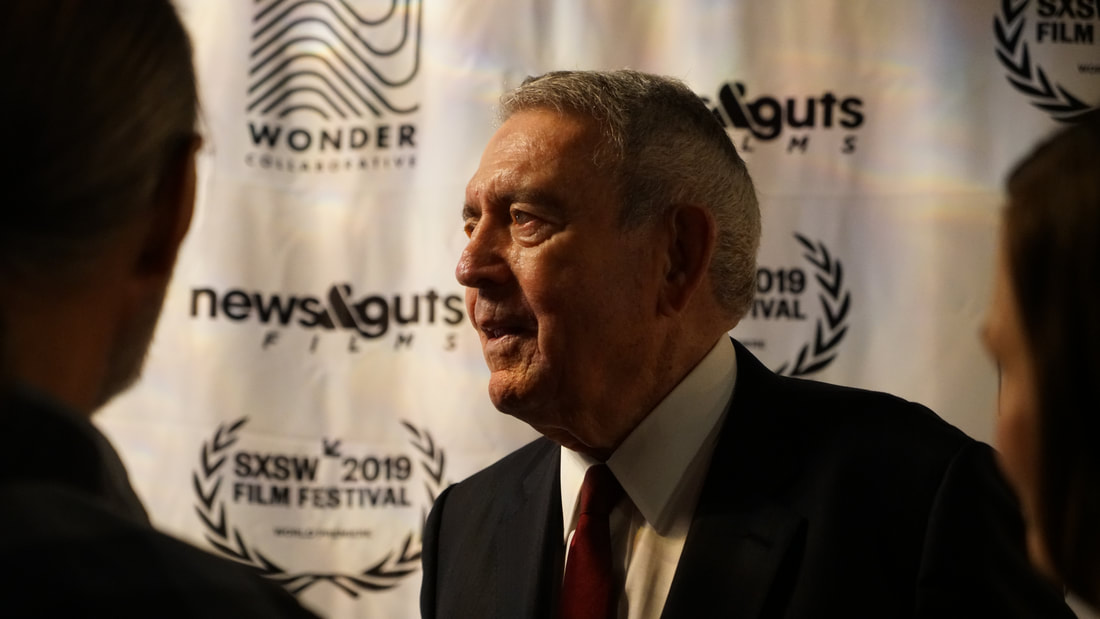The splice of life: 'Human Nature' delves into promise, perils of CRISPR gene editing technology3/20/2019
Adam Bolt's film, executive-produced by Dan Rather, premiered at SXSW
Since the dawn of agriculture more than 10,000 years ago humankind has been modifying the environment -- in other words, nature -- to suit its purposes. Enhancing crops, domesticating animals, damming rivers. In recent decades scientific advances have made it possible to create genetically modified organisms, even taking genes from one animal and inserting them into another.
But now we've entered an entirely new era where precisely editing the human genome has become a practical reality, thanks to something known as CRISPR (Clustered Regularly Interspaced Short Palindromic Repeats). The implications of this power--both its remarkable medical potential and inevitable ethical concerns--are the subject of the new documentary Human Nature, which just premiered at SXSW in Austin, Texas. It should give us some pause.
"The history of life on earth and the future of life on earth and the future of the human species, on some level, is what the film is about," says director Adam Bolt with paradoxical calm. Of the prospect of editing human genes he notes simply, "It should give us some pause."
But before we go any further, a CRISPR primer: "CRISPR is... a technology for making relatively easy and accurate changes to DNA," Bolt explains. "What it is in nature is this immune system that exists in bacteria. Bacteria, just like our own cells, get attacked by viruses, so they've developed this system for defending themselves by chopping up the DNA of the virus. And scientists figured out how to repurpose that to chop up any DNA." Including human DNA. "[CRISPR] can be used in, so far, any organism that they've tried," Bolt adds. "They've tried it in a lot, which is also one thing that's cool about it." Simply put, CRISPR makes it possible to delete genes, like those that cause disease, and replace them with something salutary. Sickle cell anemia, for instance, involves a mutation to a single gene, but with CRISPR that gene can be spliced out and substituted with a benign alternative. "There's already a few people who have been treated for sickle cell in the clinical trials and it's looking like they may be cured. I think they're still doing all the due diligence to make sure everything is at it seems. But it looks extremely promising for that," Bolt tells Nonfictionfilm.com. "And there's also trials going on for Muscular Dystrophy, certain forms of blindness that can be caused by a single mutation. CRISPR's also really important in this new way of treating cancer that kind of uses your own immune cells to fight the cancer."
Those are some pretty big upsides. But the concept of altering the human genome raises a host of concerns, which the documentary explores. Among them is whether CRISPR's uses might expand from the noble purpose of preventing diseases to the somewhat less noble goal of creating "enhanced humans."
"Using gene editing and CRISPR to make designer babies, that isn't here yet although there's this recent thing that happened in China that's kind of a rogue attempt," Bolt comments, referencing news reports that a Chinese scientist edited the genes of two babies to increase their resistance to HIV. "The question is how many people are interested in [gene editing] for things that are less controversial--just health concerns--versus these more creepy ideas of enhancing your child, enhancing intelligence or various physical characteristics," Bolt observes. "I think the thing that's really scary is somehow if we all made the same kinds of decisions and created like a uniform population and didn't have the diversity we have in the human population today... I think people are concerned about diversity getting lost as we have more ability to kind of choose traits." At a panel discussion at SXSW, titled "CRISPR: Exploring the Line Between Human and Nature," two of the executive producers of the documentary, Dan Rather and Elliot Kirschner, were joined by genetic scientist Rachel Haurwitz and bioethicist Alta Charo of the University of Wisconsin. They said it's urgent for our society to confront all the issues surrounding gene editing now, before it's become a commonly-practiced procedure--a "fact of life." Bolt concurs on "how important it is for the public to be part of this conversation and not just to be something that a bunch of policy makers and scientists are deciding." But to participate in the conversation, the public needs to become informed. "If you want to be part of the debate you kind of have to understand a little bit what CRISPR is and what gene editing is," Bolt states. "We wanted to make a film that would get everyone up to speed in a way that's cinematic and entertaining and has some real fun moments and is thought-provoking and can kickstart those conversations." 
Participants in an SXSW panel discussion on CRISPR. L-R Elliot Kirschner, executive producer of "Human Nature"; Rachel Haurwitz, President & CEO of Caribou Biosciences; Alta Charo, professor of Law and Bioethics at the University of Wisconsin, and Dan Rather, executive producer of "Human Nature." Saturday, March 9, 2019. Photo by Matt Carey
Dan Rather, the 87-year-old former CBS Evening News anchor, serves as one of the executive producers of Human Nature. His company, News and Guts, produced the film.
"The idea to make a film emerged out of an interview that Dan did with [scientist] Jennifer Doudna, who's one of the key discoverers or developers of CRISPR technology," Bolt notes. "This was kind of as CRISPR was just emerging into the public consciousness and in that interview she talked about these incredible things that were happening in her lab, these kind of earth-shaking discoveries they were making that the scientific community was really being rocked by."
From SXSW, Human Nature heads to additional prominent film festivals, with a theatrical and television or streaming platform release a distinct possibility. "Our experience at South By has been fantastic," Bolt reveals. "The reception has been amazing and we've been so thrilled to have people coming up and having enjoyed the film and feeling like a topic they thought was going to be a little dry they actually found to be kind of mind-blowing. We're taking the film to Europe--CPH:DOX. We're going to be at Full Frame in North Carolina next month and also at Hot Docs in Toronto. That's the next step, so we'll see where it goes from there. Obviously we're hoping that it gets out in the world and a lot of people can see it."  Adam Bolt, director of "Human Nature," at the SXSW Film Festival. Thursday, March 14, 2019. Photo by Matt Carey Adam Bolt, director of "Human Nature," at the SXSW Film Festival. Thursday, March 14, 2019. Photo by Matt Carey
|
AuthorMatthew Carey is a documentary filmmaker and journalist. His work has appeared on Deadline.com, CNN, CNN.com, TheWrap.com, NBCNews.com and in Documentary magazine. |
- Home
- News
- Videos
-
Galleries
- 2019 Tribeca Film Festival
- Full Frame Documentary Film Festival
- 2019 SXSW Film Festival
- SXSW 2018 Gallery
- 2019 Sundance Film Festival
- Outfest 2018 Photo Gallery
- Outfest 2017
- Sundance 2018 Photos
- 2017 LA Film Festival
- 2017 Cannes Film Festival
- Tribeca Film Festival 2017
- SXSW 2017 Gallery
- 2017 Berlin Film Festival
- Sundance 2017 Gallery
- 2016 Los Angeles Film Festival
- Cannes Film Festival 2016
- SXSW 2016 Gallery
- Berlinale 2016 Gallery
- Sundance 2016 Gallery
- Filmmaker Gallery
- About
- Contact
Proudly powered by Weebly
- Home
- News
- Videos
-
Galleries
- 2019 Tribeca Film Festival
- Full Frame Documentary Film Festival
- 2019 SXSW Film Festival
- SXSW 2018 Gallery
- 2019 Sundance Film Festival
- Outfest 2018 Photo Gallery
- Outfest 2017
- Sundance 2018 Photos
- 2017 LA Film Festival
- 2017 Cannes Film Festival
- Tribeca Film Festival 2017
- SXSW 2017 Gallery
- 2017 Berlin Film Festival
- Sundance 2017 Gallery
- 2016 Los Angeles Film Festival
- Cannes Film Festival 2016
- SXSW 2016 Gallery
- Berlinale 2016 Gallery
- Sundance 2016 Gallery
- Filmmaker Gallery
- About
- Contact



 RSS Feed
RSS Feed